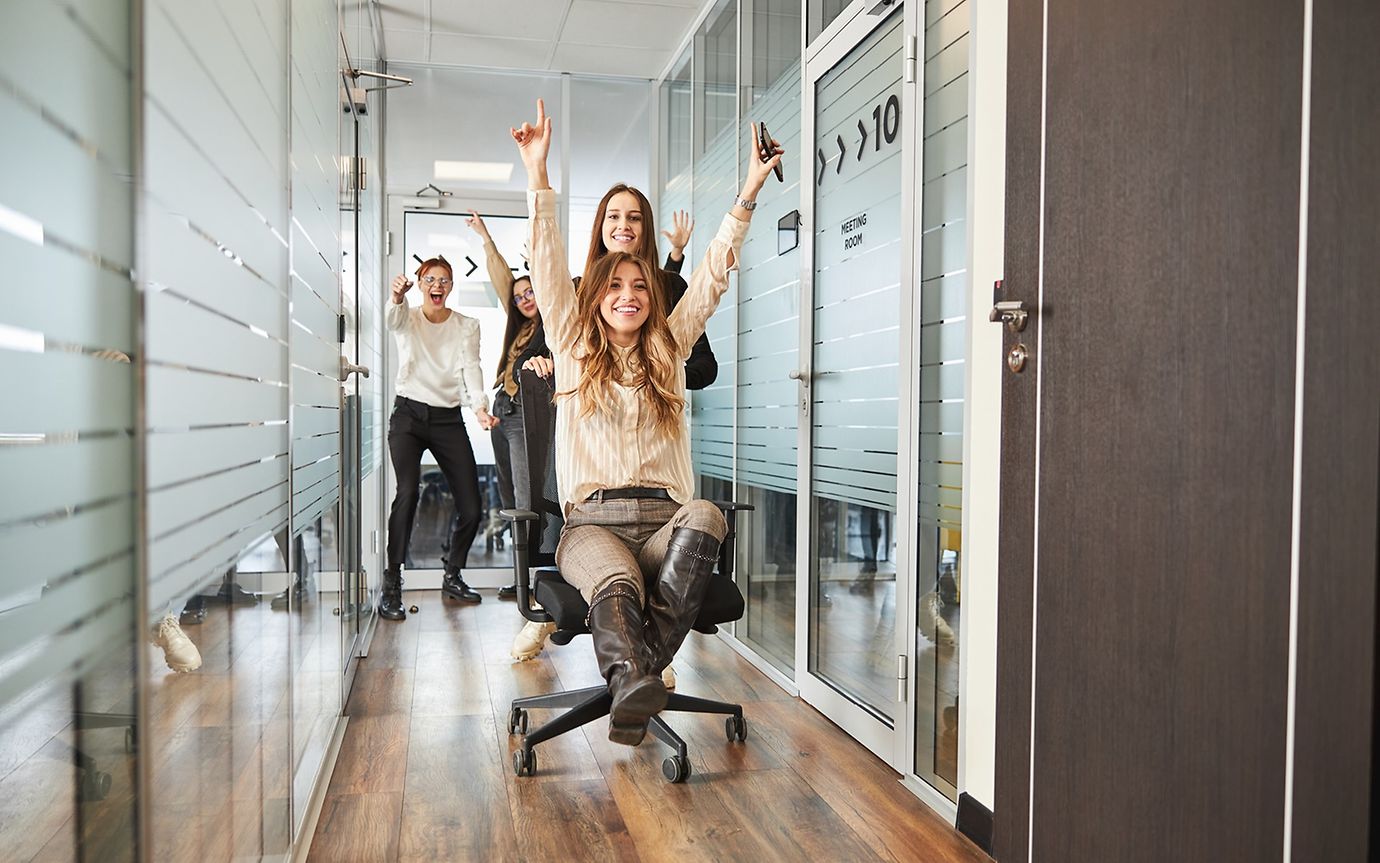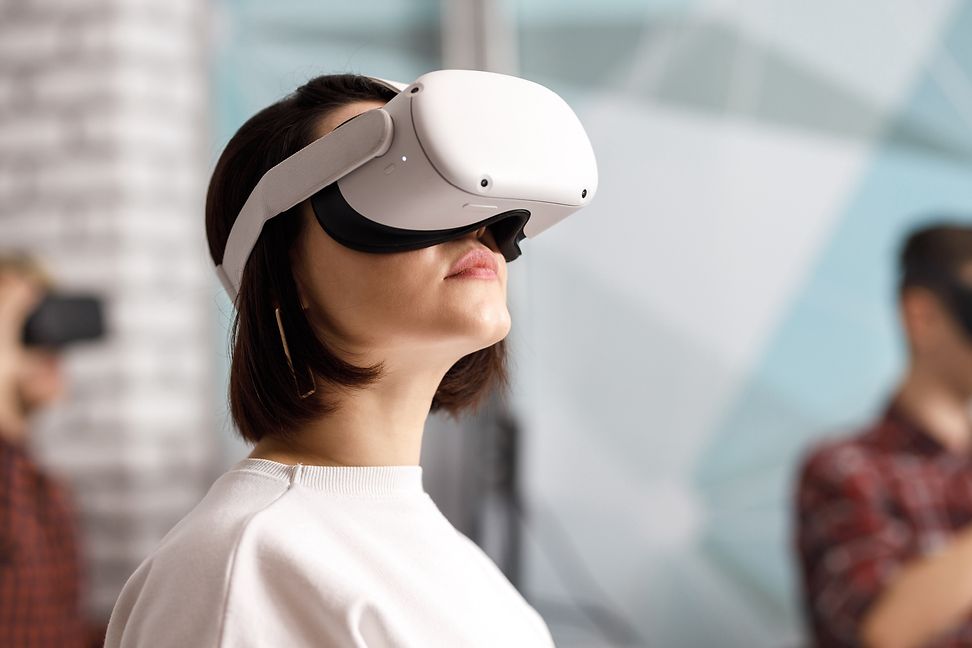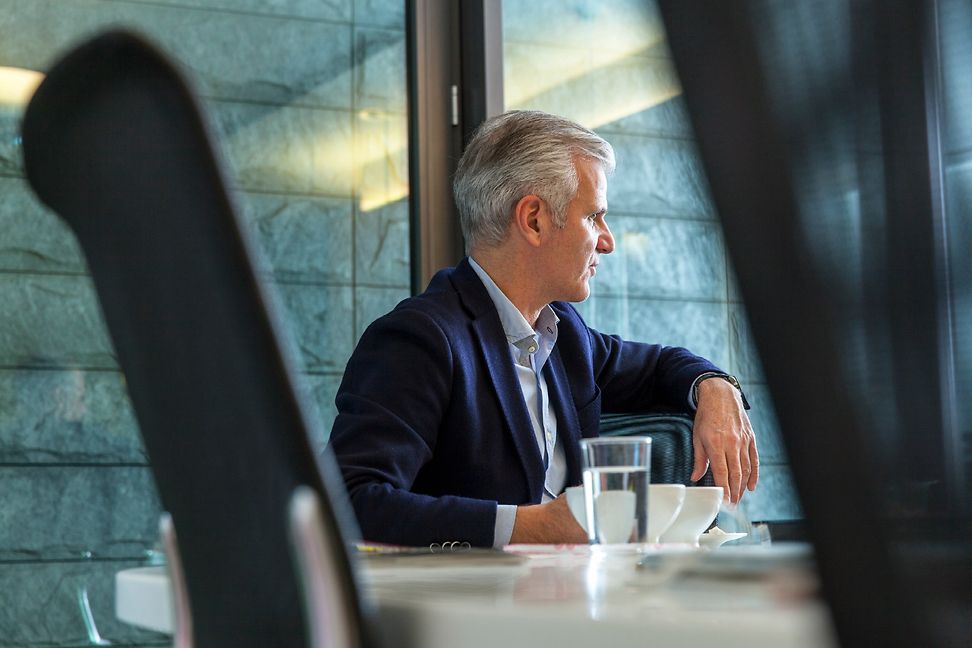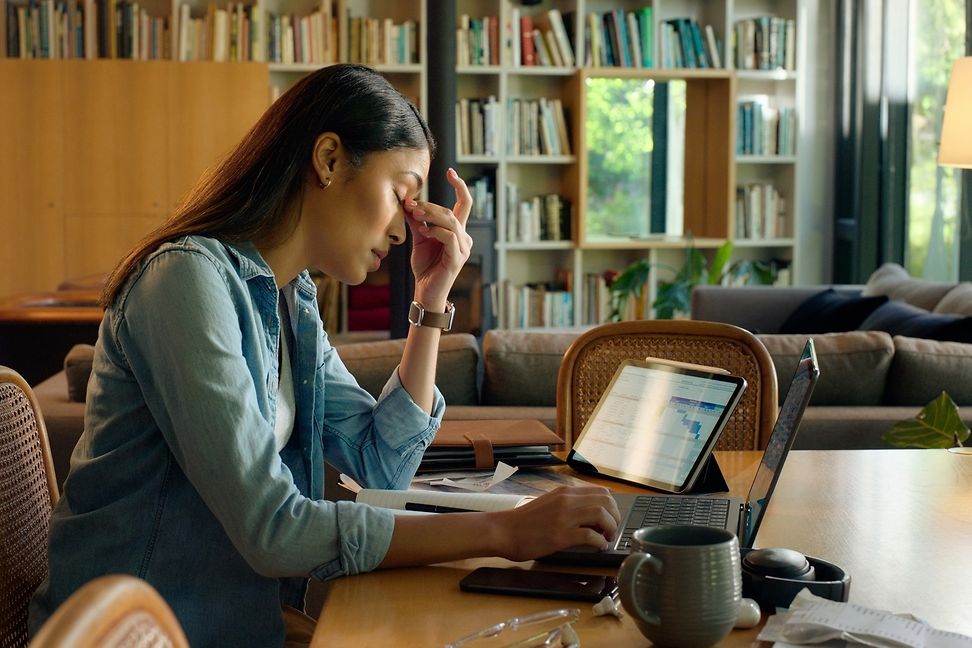在此处更改您的语言和 LGT 位置。
私人客戶的數碼平台
登錄 LGT SmartBanking
金融中介機構的數碼平台
登錄 LGT SmartBanking Pro
解答常見問題 (FAQ)
LGT SmartBanking 幫助
解答常見問題 (FAQ)
LGT SmartBanking Pro 幫助
Is New Work a passing fad, or a trend that will shape how companies operate in the future?

A recent article about New Work in the German newspaper Die Zeit starts like this: "The year is 2030. Open plan offices and overtime have become obsolete, and there are just as many female bosses as male bosses. "The author, who dreams of trust-based, flexible working hours, and greater productivity, says she is relaying "news from a better world." A world where she puts on a VR headset to meet her fellow team members in a virtual space and structures her workday remotely using her smartwatch. At different points during that workday, she will take time out to cook, pick up her daughter from daycare and do short workouts to relieve the strain on her back.

So what is this utopian concept she is referring to? What exactly is New Work?
To start with, New Work is not a utopian concept. It is a modern, employee-focused and self-determined way of working. According to New Work expert Michael Trautmann, at its core, the concept centres on "how to improve working conditions for everyone".

The term New Work was coined by the social philosopher Frithjof Bergmann. He developed this theory about the future of work and explored the idea of work environments characterised by personal fulfilment and self-determination in the mid-1970s. Bergmann fled from Austria to the US at the age of 18 to escape the Nazis. In the US, he put himself through university, among other things, by fighting in boxing matches, and working as a dockworker and a farm labourer. And what he realised was that ever since the industrial revolution in the 19th century, work had consisted of completing or getting through a series of tasks, and that people merely served as a means to an end in this process.
Like others before him, Bergmann also explored how people can achieve self-realisation through their work while still having time for personal projects and charitable work. He believed that the only way to create the new jobs and meaningful products that people want is through meaningful work. In the 1980s, Bergmann founded the Center for New Work in Flint, Michigan, a city with a long history of auto manufacturing. At the time, car manufacturers were facing mass redundancies in the wake of automation. In response to this crisis, the management at GM considered implementing one of Bergmann’s proposals, namely, to let employees keep their jobs, but only work for the company for six months a year. For the remaining six months, Bergmann believed they should engage in activities for themselves and their community.
Ultimately, GM couldn’t implement Bergmann’s plan without creating a host of new problems. But that did not mark the end of the New Work concept. On the contrary. In recent years, digitalisation and the increasing importance of artificial intelligence have given it a new lease on life. For proof, look no further than the billionaire Jack Ma, founder of the tech giant Alibaba. Ma believes that in the future, people will only have to work 12 hours a week thanks to artificial intelligence.

New Work expert Michael Trautmann shares the view that in the future, work will entail less work. However, according to Trautmann, who has run advertising agencies and was Head Marketing at Audi, that’s only one aspect of the New Work concept. Trautmann says that people and companies need purpose, and believes that as suggested by Frithjof Bergmann, the work done at companies must be meaningful for both employees and the company - and for customers. Identifying and communicating this meaning, he says, is the responsibility of a company’s leadership.
According to this modern day interpretation of the New Work concept, each employee is given more responsibility, and traditional hierarchies are replaced by self-organising teams, lean management and agile working. This in turn results in an improved work environment and working conditions, as deep, distraction-free and focused work, meaningful collaboration and remote work become pivotal - as does lifelong learning.

But does the New Work model work? And do we even need to make such far-reaching changes to how we work?
There is much to suggest that New Work is here to stay. In a 2023 report by Ecoplan about the potential of New Work, the Swiss consultancy and research bureau refers to it as "a rather imprecise thought model". However, the experts agree that New Work is a trend - not a fantasy. The global pandemic accelerated this trend, helping certain technologies and concepts achieve a broad-based and swift breakthrough - in particular remote work.

It is therefore not surprising that flexible working hours and working locations, project-based and agile working, and a focus on meaningful work are already a reality at many companies in Liechtenstein, Switzerland, Germany and Austria. Such companies often have a combination of "old" and "new" forms of work. For example, according to Elvira Knecht, an HR manager Liechtenstein & Switzerland at LGT, agile working is already a reality in various teams and business units at LGT.

But New Work also has the potential to have negative effects. For example, in its report, Ecoplan warns that the model could reinforce existing social inequalities. The report also highlights the growing importance of workplace health and explains that this new way of working brings "considerable health risks" with it, as new technologies and forms of work give rise to new mental illnesses. On the flipside, however, companies have never paid as much attention to employee health as they do today.

It should also be mentioned that not all employees are eager to usher in the age of New Work. According to a column in the Neue Zuercher Zeitung, many workers instead long to have "real bosses" again, who set boundaries and assign clear tasks. They hope that a return to more traditional ways of working will make them happier. What’s more likely, however, is that work will continue to have the potential to be both fulfilling and make you happy or make you sick and miserable - regardless of whether you have a "real" boss, or you work from home, from the beach or from a desk at the office.